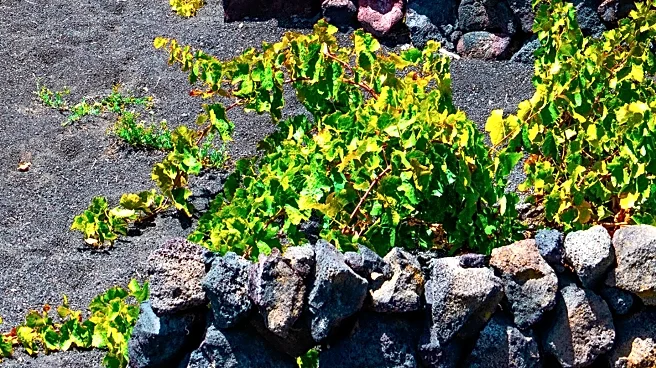What's Happening?
Lanzarote, part of Spain's Canary Islands, has developed a unique farming system that thrives despite its volcanic landscape and minimal rainfall. The island's farmers have adapted to the harsh conditions by using ash-mulch farming, a technique that involves
covering soil with volcanic ash to trap humidity and enrich the soil. This method has allowed crops like grapevines, strawberries, and sweet potatoes to flourish in seemingly barren soil. The farming system emerged after massive volcanic eruptions in the 18th century buried much of the island under lava and ash.
Why It's Important?
Lanzarote's innovative farming techniques demonstrate resilience and adaptability in the face of environmental challenges. The success of ash-mulch farming offers valuable lessons for sustainable agriculture, particularly in regions facing similar conditions. The island's approach to agriculture could influence global farming practices, promoting sustainability and biodiversity. The story highlights the importance of traditional knowledge and community resilience, which are crucial for addressing climate change and food security challenges.
What's Next?
Lanzarote's farming system may inspire other regions to adopt similar techniques, potentially influencing global agricultural practices. The island's success could lead to increased interest in sustainable farming methods, impacting policy decisions and research initiatives. Stakeholders, including environmental organizations and agricultural experts, may explore the potential of ash-mulch farming in other regions, promoting innovation and sustainability in agriculture.
Beyond the Headlines
The story underscores the cultural and historical significance of Lanzarote's farming system, highlighting the role of traditional knowledge in modern agriculture. The island's resilience in the face of environmental challenges offers insights into community adaptation and sustainability. The success of ash-mulch farming may lead to long-term shifts in agricultural practices, promoting biodiversity and environmental conservation.















